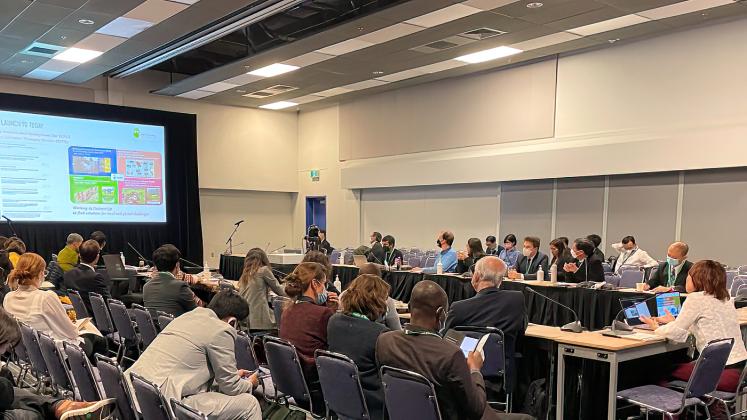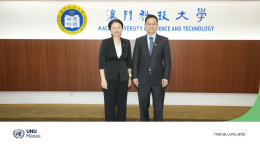On 7 December 2022 a side event at the UN Biodiversity Conference in Montreal celebrated the first decade of the International Partnership for the Satoyama Initiative (IPSI). The session discussed achievements to date and future priority areas, and launched the IPSI Decade Report 2010–2022, summarising activities and outcomes of the partnership. UNU-IAS co-organised the event with the Ministry of the Environment, Japan (MOEJ), the Institute for Global Environmental Strategies (IGES), UNDP, the CBD Secretariat, the Asian Development Bank, and IPSI.
In opening remarks Tsunao Watanabe (Senior Programme Coordinator, UNU-IAS) highlighted that in its first 12 years IPSI had grown from 51 members to 292, promoting the Satoyama Initiative around the world. Members produced 251 case studies on socio-ecological production landscapes and seascapes (SEPLS) and 58 collaborative activities, which provided rich and diverse research findings on sustainability.
Speakers Keiichi Nakazawa (Director, Wildlife Division, MOEJ), Alfred Otengyeboah (Chair, IPSI Steering Committee), Kazuhiko Takeuchi (President, IGES), and Wataru Suzuki (Global Coordinator, CBD Secretariat) congratulated IPSI for promoting sustainable biodiversity management that advanced progress on the Aichi Biodiversity Targets and the SDGs.
Makiko Yanagiya (Programme Coordinator, UNU-IAS) outlined IPSI’s achievements, highlighting the Satoyama Initiative Thematic Review, a serial publication with case studies on SEPLS management and good practices, and the development of a manual for applying landscape approaches in national biodiversity strategies and action plans (NBSAPs). She presented potential priority areas of the new IPSI Plan of Action, including ecosystem restoration, area-based conservation measures, policy and capacity development, and creating market mechanisms that support SEPLS. Yueyu Zou (Environmental Specialist, ADB) noted that ADB had recently applied to join IPSI to promote opportunities and innovations for enhancing environmental sustainability in Asia and the Pacific.
William Dunbar (Project Manager, Conservation International) introduced a joint project of UNU-IAS and Conservation InternationaI aiming to compile lessons learned from years of experience working on landscape management and apply them to the designation and implementation of other effective area-based conservation measures (OECMs).
A panel discussion engaging Maurizio Farhan Ferrari (Forest People’s Programme), Terence Hay-Edie (Programme Advisor for biodiversity, UNDP-GEF Small Grants Programme), and Somaly Chan (Deputy Secretary General, Ministry of the Environment of Cambodia) focused on how IPSI provides collaboration opportunities for diverse organisations. Panellists highlighted the Satoyama Development Mechanism and COMDEKS for their financial support to local and indigenous communities, offering critical seed funding to start or support local initiatives. The panellists stressed that the Satoyama Initiative could contribute to the post-2020 global biodiversity framework.
About IPSI
UNU-IAS serves as the secretariat for the International Partnership for the Satoyama Initiative (IPSI) project. IPSI works to promote the Satoyama Initiative, a global effort to realise societies in harmony with nature through the revitalization and sustainable management of socio-ecological production landscapes and seascapes (SEPLS) for biodiversity and human well-being. SEPLS are areas where people and the ecosystem have a symbiotic relationship, each benefitting from the other. More information is available on the IPSI website.




